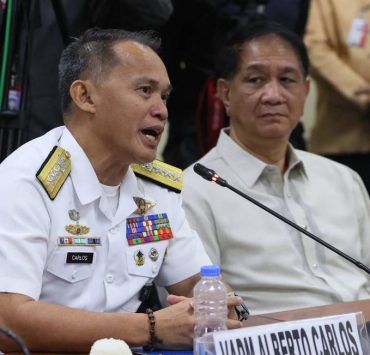When the Left is more Christian than the so-called Christians
“Oremus pro invicem” roughly translates as “let us pray for each other.” This is a common expression in the Christian world, wherein people continue praying for one another—for good health, safety from danger, and prosperity. Prayer somehow provides strength and a sense of community, since many people pray for you. This is also a common joke of godparents (ninongs and ninangs) in the Philippines whenever their godchildren (inaanak) visit asking for a gift (aguinaldo), they often say “You are included in our prayers.”
However, nowadays the notion of prayer seems to have fallen into a “to each their own” mentality. People prefer to pray rather than engage actively, believing prayer has a dual outcome: if it works then God has heard them, if not then God has other plans. In my view this hinders progress on pressing social problems—we prefer to pray rather than participate collectively.
Last Sunday, while riding a jeepney, two women from a church discussed the jeepney phase-out. They felt it would visually improve the city to replace the old models with air-conditioned vehicles. However, phasing out this vital public transportation would burden not just drivers but all Filipinos. Aside from impacting numerous jeepney drivers and operators, students would soon struggle as fares increase, putting them at a disadvantage just to travel to school. Small-scale food vendors (karinderyas) and convenience shops (sari-sari stores) would also be affected in terms of accessing supplies.
One expects religious leaders, regardless of affiliation, to support collective action defending jeepney drivers facing such threats. I recall a student who belonged to a prosperous mega-church where members had luxury cars. When I asked her about their stance on state-sanctioned killings, she replied “Our church remains very neutral, sir.” This led me to wonder: When was the last time these major faith groups, known for delivering block votes to favored politicians, spoke out on pressing national issues? When was the last time these Saturday church-goers and prosperity gospel congregations addressed the plight of jeepney drivers or offered assistance?
Since most of us commute, jeepneys provide essential economic and logistical support, especially in provincial areas. Why won’t these self-proclaimed Christians help them? Perhaps because political engagement risks decreasing followers—churches discussing social problems face Red-tagging, and nowadays parishioners prioritize comfort over confronting inequality.
Hence, I see the national democratic mass organizations (NDMOs) as the “true Christians,” though some individuals harbor materialist mentalities. Their focus on championing marginalized groups and fighting oppression represents Christ’s teachings. Their church is where the masses are the messiah and their gospel is collective action to solve issues. The Bible emphasizes God standing with the oppressed—Psalm 9:9 calls the Lord “the stronghold of the oppressed,” and Isaiah 1:17 says to “learn to do good; seek justice, correct oppression.”
Yet despite sharing the same holy book, many religious turn a blind eye to oppression. More than prayers, we need action following the NDMOs’ example of theory turned to practice. Like persecuted early Christians, they face persecution for enlightening people. Why don’t modern religious groups follow suit? As Søren Kierkegaard said, “Prayer doesn’t change God, it changes the one who prays.” Thus, the more we pray without acting, the more detached from reality we become regarding social injustice.
Sensei M. Adorador,
faculty,
College of Education,
Carlos Hilado Memorial
















